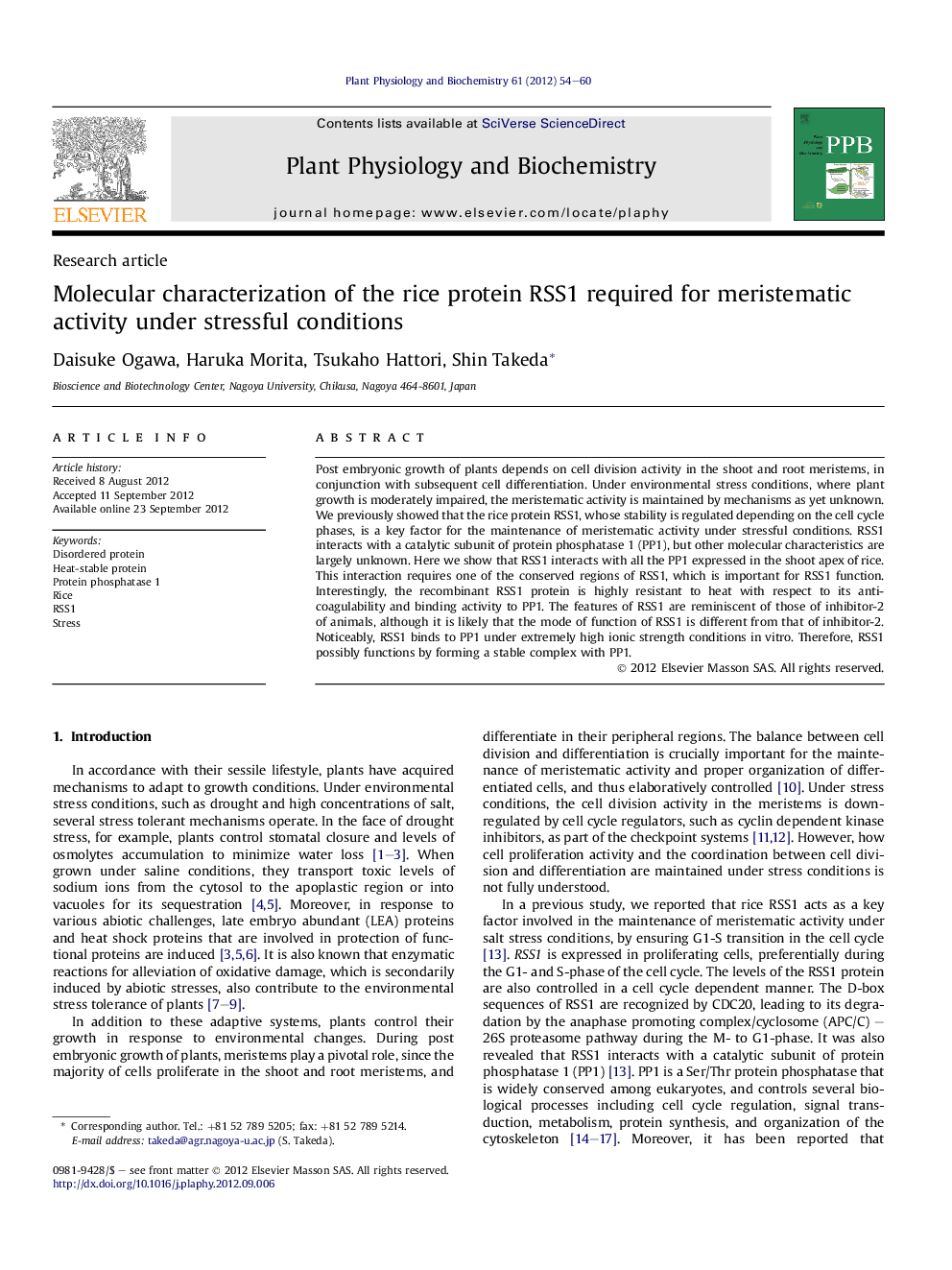| Article ID | Journal | Published Year | Pages | File Type |
|---|---|---|---|---|
| 2014964 | Plant Physiology and Biochemistry | 2012 | 7 Pages |
Post embryonic growth of plants depends on cell division activity in the shoot and root meristems, in conjunction with subsequent cell differentiation. Under environmental stress conditions, where plant growth is moderately impaired, the meristematic activity is maintained by mechanisms as yet unknown. We previously showed that the rice protein RSS1, whose stability is regulated depending on the cell cycle phases, is a key factor for the maintenance of meristematic activity under stressful conditions. RSS1 interacts with a catalytic subunit of protein phosphatase 1 (PP1), but other molecular characteristics are largely unknown. Here we show that RSS1 interacts with all the PP1 expressed in the shoot apex of rice. This interaction requires one of the conserved regions of RSS1, which is important for RSS1 function. Interestingly, the recombinant RSS1 protein is highly resistant to heat with respect to its anti-coagulability and binding activity to PP1. The features of RSS1 are reminiscent of those of inhibitor-2 of animals, although it is likely that the mode of function of RSS1 is different from that of inhibitor-2. Noticeably, RSS1 binds to PP1 under extremely high ionic strength conditions in vitro. Therefore, RSS1 possibly functions by forming a stable complex with PP1.
► RSS1 interacts with all OsPP1s expressed in the shoot apex of rice. ► OsPP1a interacts with the conserved region of RSS1 which is important for function. ► RSS1 has affinity to OsPP1a even under high ionic strength conditions. ► RSS1 is a heat-stable protein. ► The high thermal stability of RSS1 may be suitable for function under stress conditions.
